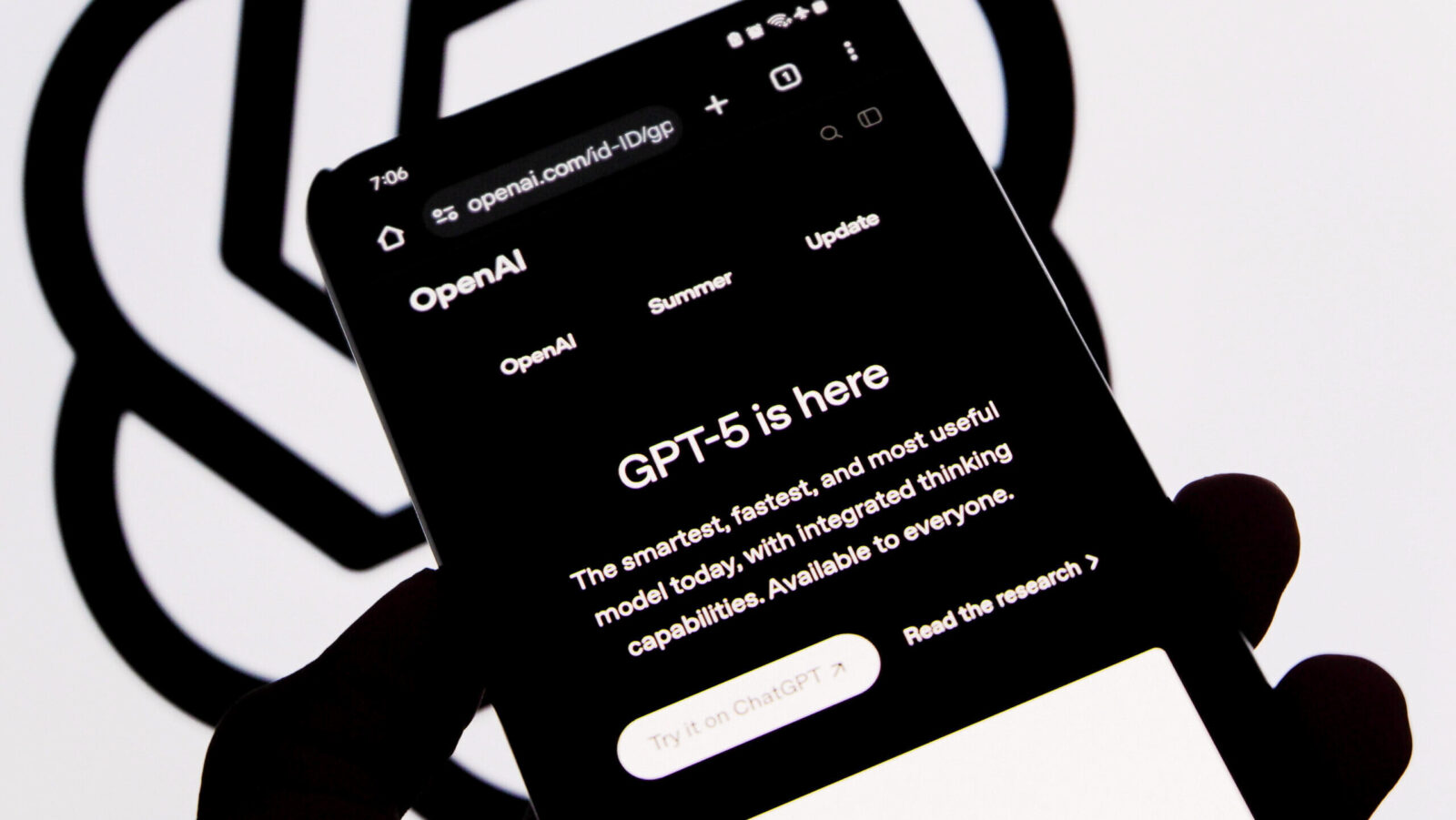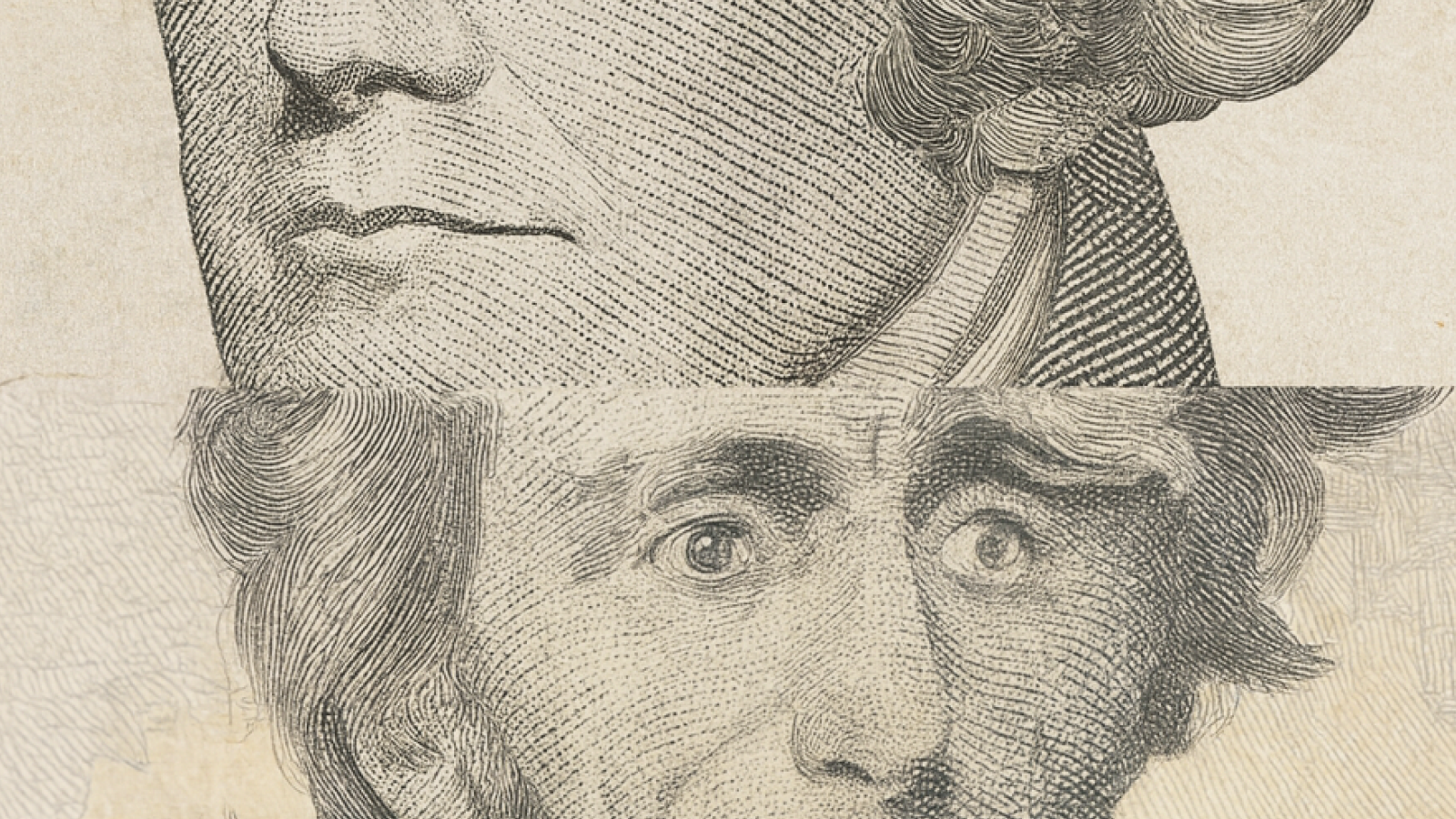Good morning.
If the only thing to fear is fear itself, Wall Street has nothing to worry about. The market’s go-to gauge for investor angst, the Cboe Volatility Index, fell to its lowest level of 2025 on Wednesday, suggesting months of uneasiness amid tariff turmoil have given way to a state of relative zen.
It’s not as if investors have learned to start loving trade wars and stop worrying. The Trump administration’s reciprocal tariffs took effect last week, offering a greater degree of clarity around trade policy, while earnings at tech giants Alphabet, Apple, Meta, Microsoft and Nvidia came in above expectations. And inflation isn’t really rearing its head either. But who knows what early Halloween spooks may emerge ahead of any September rate cut.
Can OpenAI Recover From Botched GPT-5 Rollout?

Perhaps for the first time in its history, OpenAI is playing defense.
Last week, the AI firm released GPT-5, the latest model of its preeminent chatbot that CEO Sam Altman touted as a one-size-fits-all AI model. The backlash was immediate: Apparently, the new size fit very few dedicated ChatGPT users, and OpenAI has spent this week scrambling to make up for the blunder. Which begs the question: With competitors, especially deep-pocketed Big Tech firms, on the rise, can OpenAI afford to lose a step?
Model Behavior
Where recent iterations of ChatGPT allowed users to tinker with various settings, the initial version of GPT-5 attempted to do the tinkering for the user based on the prompts they were using. In essence, the one-size-fits-all model was actually a model that changed the size of its efforts depending on what it thought the user’s needs were. Users quickly complained, however, that the system didn’t seem to work all that well. By Tuesday of this week, the company added more settings options, while making legacy versions of ChatGPT available to users as well. Meanwhile, after designing GPT-5’s personality to be “not as annoying (to most users),” per Altman, the company added in personality customization tools when users complained the latest model lacked some spark. In other words, after trying to make ChatGPT as streamlined as possible, OpenAI has instead made it arguably more customizable than ever.
That may not be the worst thing in the world. The market for AI is increasingly crowded, and enterprise clients are looking for flexibility — with open-source models particularly favored by international firms (OpenAI released its first open-source model, gpt-oss, earlier this month). “At any point in time, we probably have a stable of about 10 open-source models that we’re using,” Donald MacDonald, an executive at Oversea-Chinese Banking Corp., recently told The Wall Street Journal.
Translation: Unlike past tech eras, the AI war may not be winner-take-all. As for OpenAI, it still has good cards to play:
- For starters, ChatGPT’s nearly 800 million weekly active users tower above the competition, while major US cloud providers like Amazon Web Services are offering clients access to gpt-oss, thanks to its low cost. That does come with a downside: costs. Unlike previous tech giants, chatbot operators don’t benefit from ultra-low marginal costs to add users; AI’s scaling costs are taking the “hyper” out of “hyperscalers.”
- Still, ChatGPT’s massive user base and the data it produces are likely to be highly valuable. The company is quietly launching partnerships with finance firms like Stripe and Visa, as well as consumer platforms like Booking.com and Instacart, and retail players like Mattel and Lowe’s, setting the stage for what AI research firm SemiAnalysis recently posited will be a “Consumer SuperApp.”
What the Zuck: Leading OpenAI’s charge to create such an app is recent hire Fidji Simo, the former CEO of Instacart and, perhaps more importantly, a former executive of Facebook widely credited for revolutionizing the platform’s ability to monetize its massive user base. Sorry, Zuckerberg: You can poach all the OpenAI “superintelligence” talent that you want, but at the end of the day, this is about making money.
Your Savings Shouldn’t Be Sitting On Its Hands – Explore 4% Yields

Most people stick with the same bank for years, even when that means earning just 0.01% on their savings. In fact, over 80% of Americans aren’t using high-yield savings accounts at all.
The result? Missed interest, year after year.
That’s where Raisin comes in.
Raisin is a centralized savings platform that connects you directly to 75+ banks and credit unions so you can access guaranteed interest of over 4%. It’s especially useful for managing larger deposits: one dashboard, no paperwork and full visibility across multiple banks.
And through September 30, Raisin is offering up to $1,000¹ in bonus cash when you deposit $10,000 or more with code EASY.
Raisin makes it easy to switch — because staying put could be costing you.
Amazon Cuts in Line at Online Grocery Checkout
Nothing goes better with bananas and eggs than a 12-pack of off-brand socks and a digital camera. At least, according to Amazon, which is rolling out a new system that’ll offer same-day delivery of fresh perishables alongside the platform’s less edible selections.
Prime members in 1,000 US cities and towns, including Milwaukee and Columbus, can now order same-day rotisserie chickens with their other marketplace purchases, Amazon said yesterday. By the end of this year, Amazon plans to more than double the service’s reach.
Shares of rival grocery sellers, including Walmart and Kroger, dipped on the news. Instacart, which helped pioneer the online grocery space, saw its parent company Maplebear’s stock fall 12%.
Food Fight in Aisle 3
Amazon has struggled to take a bite out of the $875 billion US grocery market since launching an online grocery storefront in 2006 and later acquiring Whole Foods for $13.7 billion. The e-giant has since rolled out online grocery shopping programs like Fresh and Prime Now, as well as opened in-person Go stores (which it has since been closing down).
But Amazon has remained a small player compared with rivals that don’t plan to make it easy for the marketplace to steal their shelf space:
- Walmart, the No. 1 US grocer, reported a quarterly profit from its e-commerce arm for the first time this year, and groceries made up 60% of Walmart’s net sales last year. Walmart said this spring it’ll soon offer three-hour delivery to most US customers. Target, meanwhile, has grown its grocery business by billions in recent years and is beefing up online offerings (literally: it teamed up with ButcherBox).
- Instacart’s biz boomed during the pandemic, and its shares have climbed more than 50% since going public two years ago. The online grocery platform last week shared its sixth straight quarter of double-digit growth in total transaction value alongside an upbeat forecast.
One-stop Shop: Amazon’s latest move to let customers buy perishables and other items for same-day delivery could help the e-giant live up to its original promise of being the “Everything Store.” Amazon started testing its new grocery program last year in cities like Phoenix and Orlando, where it said many shoppers who tried the service were first-time grocery buyers on its platform. In an early sign the strategy shift could be working, Amazon said it consistently sells more strawberries in those regions than AirPods.
Growth Or Caution? Top CFOs Say: Both. Every dollar matters in 2025 — and capital allocation is under more scrutiny than ever. Join The Daily Upside and Ramp as they bring you a candid on-demand discussion with top finance leaders on smarter spending, prioritizing investments, and balancing growth with risk when every decision counts. Watch now.
New York Accuses Bank-Backed Zelle of $1 Billion Security Bungle
New York Attorney General Letitia James says the digital payments network Zelle, owned by a consortium of Wall Street banking giants, “has been teeming with fraudsters who have stolen staggering sums from consumers.”
Zelle says James’ office, which accused its parent Early Warning Services in a lawsuit Wednesday of enabling fraud by doing next to nothing to stop it, is engaging in nothing more than a “political stunt to generate press.” The heated exchange made for exciting, Billions-style drama, but more importantly, offered a look at the state of clampdowns on Corporate America in 2025 and beyond.
New York State of Mind
Zelle was launched in 2017 as an alternative to peer-to-peer payment platforms like PayPal and its subsidiary Venmo, with the selling point being that it was backed by the weight of the country’s top consumer banks. Bank of America, Truist, Capital One, JPMorgan Chase, PNC Bank, U.S. Bank, and Wells Fargo jointly own its parent, and some 2,200 financial institutions allow customers to use Zelle directly through their app or services.
It’s not an understatement to say that, with access to the enormous customer base of all these financial institutions, Zelle has taken off. Last year, the network topped $1 trillion in person-to-person transactions, a 27% year-over-year increase, while its user base grew 12% to 151 million accounts. That was the most in P2P transactions for any payments service in a single year — PayPal, by comparison, reported $400 billion in P2P payments in 2024. But Zelle’s astronomical growth, the state Attorney General’s Office alleged, coincided with negligent loopholes the size of the Milky Way Galaxy:
- New York’s lawsuit claims Zelle’s registration process was missing verification steps, which it alleges EWS and its bank backers were aware contributed to fraud amounting to roughly $1 billion, “for years.” James is seeking restitution and damages based on the claim that scammers stole more than $1 billion from Zelle users from 2017 to 2023, and is asking for a court order requiring Zelle to put anti-fraud measures in place.
- Zelle, rebuffing the lawsuit, said the Attorney General’s Office did not conduct an investigation of its platform and argued the claims are meritless. “Had they conducted an investigation, they would have learned that more than 99.95% of all Zelle transactions are completed without any report of scam or fraud — which leads the industry,” a spokesperson said.
Cases Closed: James’ lawsuit suggests that states that disagree with the Consumer Financial Protection Bureau’s softening approach to bank oversight may file their own lawsuits where the agency has stepped back, though consumer advocacy groups have questioned whether they could fill the gap.
Extra Upside
- Thielbucks to Real Bucks: True to the company’s name, shares in Peter Thiel-backed crypto exchange Bullish surged over 140% Wednesday in their NYSE debut as it joined larger rival Coinbase on the public market.
- Sweet Home Alabama: GE Appliances said Wednesday that it will invest $3 billion over five years to shift manufacturing of fridges, water heaters and more out of China and Mexico and to the southern United States.
- 7 Ways To Achieve A Comfortable Retirement. Retirement planning shouldn’t be complicated. The Definitive Guide to Retirement Income can help you feel confident about your financial future. Explore seven income streams to help keep a $1,000,000 portfolio growing for years to come. Learn more.*
* Partner
Just For Fun
Disclaimer
¹New customers only. Earn a cash bonus when you deposit and maintain funds with partner banks on the Raisin platform. Customers will receive $75 for depositing between $10,000 and $24,499, $250 for depositing between $25,000 and $49,999, $500 for depositing between $50,000 and $99,999, and $1,000 for depositing $100,000 or more. To qualify for the bonus, your first deposit must be initiated between August 1, 2025, and September 30, 2025, by 11:59 PM ET, and the promo code EASY must be entered at the time of sign-up. Only funds deposited within 14 days of the initial deposit date and maintained with partner banks on the Raisin platform for 90 days will be eligible for this bonus. Bonus cash will be deposited by Raisin into the customer’s linked external bank account within 30 days of meeting all qualifying terms. This offer is available to new customers only and may not be combined with any other bonus offers. Raisin reserves the right to modify or terminate this offer at any time.

